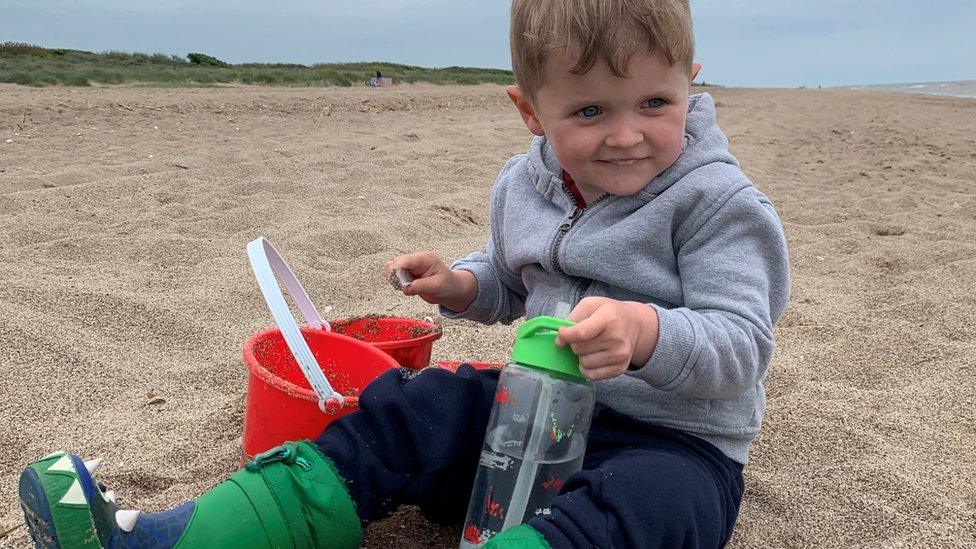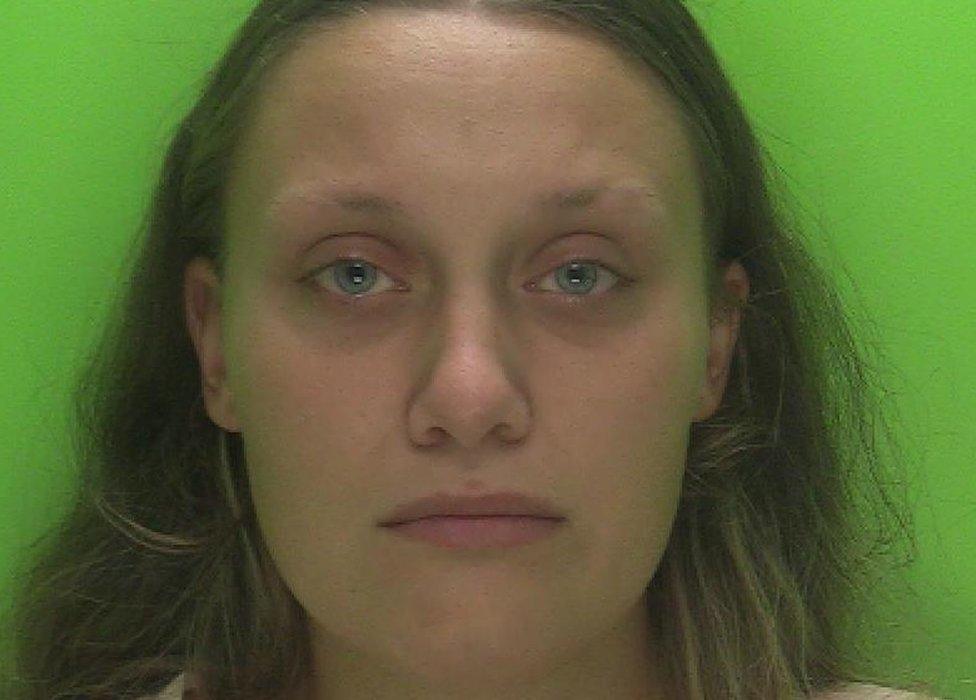Leila Borrington: Woman guilty of killing three-year-old stepson
- Published

Harvey Borrington was three when he died
A woman has been found guilty of the manslaughter of her three-year-old stepson but acquitted of his murder.
Leila Borrington, 23, was also convicted of assaulting and causing grievous bodily harm to Harvey Borrington.
The child was taken to hospital on 7 August 2021 and died two days later from head injuries.
A trial heard Borrington targeted Harvey as his non-verbal autism made it difficult for him to express pain.
She was cleared of three charges of assault occasioning actual bodily harm at Nottingham Crown Court and is due to be sentenced on 16 March.
The court heard the jury cleared Borrington of murder after concluding she had not intended to kill or cause really serious injury.

Borrington will be sentenced on 16 March
The trial had previously heard Harvey sustained fatal head injuries, including a fractured skull and a bleed on the brain, at Borrington's home in Main Road, Jacksdale, Nottinghamshire, and died in hospital two days later.
The stepmother told the trial she had never harmed Harvey, claiming he had fallen off a sofa.
The court heard that before ringing 999, the 23-year-old texted Harvey's father, who was out at the cinema, saying: "Why does this happen to me?"
She also filmed Harvey moments after his collapse.

Harvey Borrington died in hospital after being found injured at home
During the trial an expert witness called by the prosecution said that "the account provided by the caregiver does not explain the extent of the injuries" and added that she believed Harvey had died as a result of "direct blunt force trauma", sustained after Borrington "assaulted" the youngster.
The court heard Harvey had sustained other injuries in the weeks prior to his death including a spiral arm fracture, a scrape on his back and marks on his ears and face.
Borrington told the court these injuries were either self-inflicted or, in the case of the arm fracture, caused when she pulled Harvey up as he tripped walking up the stairs.
During the trial, prosecutor Jonas Hankin KC argued she had "twisted and turned" her story to suit the evidence.
He also claimed she targeted Harvey, who was non-verbal autistic and communicated through a handful of words, gestures and screams, because he was unable to articulate when he was in pain.
After the verdicts, Mr Justice Nicklin remanded Borrington in custody and thanked the jury for its "crucial" decision-making.

Follow BBC East Midlands on Facebook, external, Twitter, external, or Instagram, external. Send your story ideas to eastmidsnews@bbc.co.uk, external.